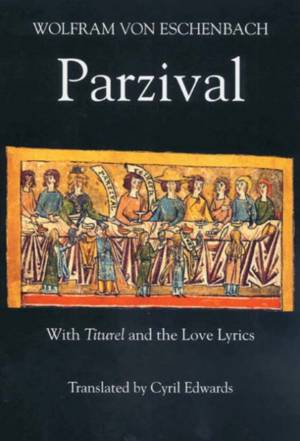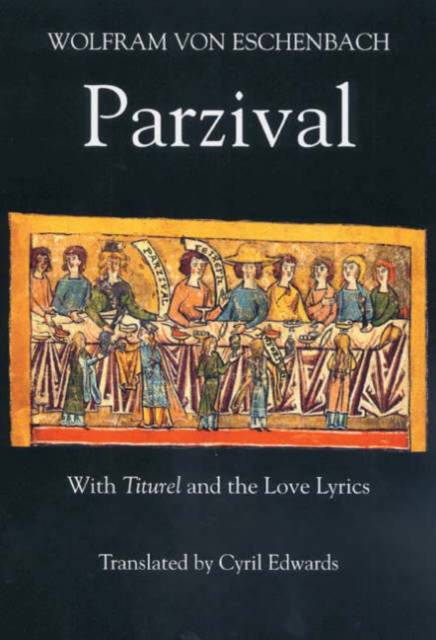
Bedankt voor het vertrouwen het afgelopen jaar! Om jou te bedanken bieden we GRATIS verzending (in België) aan op alles gedurende de hele maand januari.
- Afhalen na 1 uur in een winkel met voorraad
- In januari gratis thuislevering in België
- Ruim aanbod met 7 miljoen producten
Bedankt voor het vertrouwen het afgelopen jaar! Om jou te bedanken bieden we GRATIS verzending (in België) aan op alles gedurende de hele maand januari.
- Afhalen na 1 uur in een winkel met voorraad
- In januari gratis thuislevering in België
- Ruim aanbod met 7 miljoen producten
Zoeken
Omschrijving
Vast in its scope, incomparably dense in its imagery, Wolfram von Eschenbach's Parzival ranks alongside Dante's Divine Comedy as one of the foremost narrative works to emerge from medieval Europe. This book is a new translation of Parzival, together with the fragments of the Titurel, an elegiac offshoot of Parzival, and the nine love-songs attributed to Wolfram. Parzival is the greatest of the medieval Grail romances. In its depth and complexity of characterisation this work of the early thirteenth century anticipates the modern novel. It encompasses deeds of chivalry, tournaments and sieges, courtly love, and other erotic undertakings, but also sin and penance, and a deeply moving study in depression. All is underpinned by the narrator's irrepressible humour. The central stages are the Grail Castle and Arthur's Round Table, but the pagan world of the Orient also plays its role. Parzival has inspired and influenced works as diverse as Wagner's Parsifal and Lohengrin, Franz Kafka's The Castle, Terry Gilliam's film The Fisher King, and Umberto Eco's Baudolino. CYRIL EDWARDS is a Lecturer in German at St. Peter's College and Research Fellow of the Faculty of Medieval and Modern Languages of the University of Oxford. He is the author of The Beginnings of German Literature (Camden House, 2002), and numerous articles on the medieval lyric and Old High German. His previous translations include Hans Sachs's Song of the Nose for the King's Singers, Bernhard Maier's Dictionary of Celtic Religion and Culture (Boydell & Brewer, 1997) and The Medieval Housebook (Prestel-Verlag, 1997).
Specificaties
Betrokkenen
- Auteur(s):
- Uitgeverij:
Inhoud
- Aantal bladzijden:
- 368
- Taal:
- Engels
- Reeks:
- Reeksnummer:
- nr. 56
Eigenschappen
- Productcode (EAN):
- 9781843840053
- Verschijningsdatum:
- 1/10/2002
- Uitvoering:
- Hardcover
- Formaat:
- Genaaid
- Afmetingen:
- 156 mm x 244 mm
- Gewicht:
- 966 g

Alleen bij Standaard Boekhandel
+ 418 punten op je klantenkaart van Standaard Boekhandel
Beoordelingen
We publiceren alleen reviews die voldoen aan de voorwaarden voor reviews. Bekijk onze voorwaarden voor reviews.









